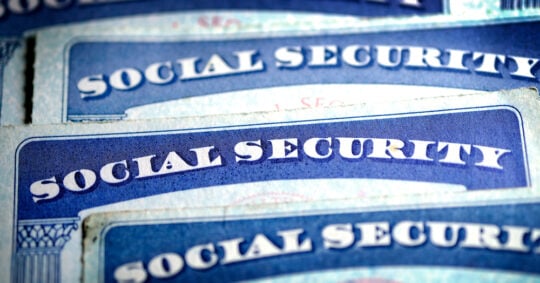How Do Employers Verify Education – A Peek Behind the Scenes
Cindy Ellis - March 20, 2024

A candidate’s educational qualifications can be a make-or-break factor in hiring. Employers invest significant resources into new hires, so they are vested in confirming the accuracy of stated degrees, diplomas, and certifications as part of their hiring background checks.
From conducting simple Google searches to employing third-party screening firms, hiring managers and HR departments use numerous techniques to corroborate academic pedigrees.
Understanding how employers verify education can benefit both sides of the hiring equation. As a candidate, it helps manage expectations and avoids potential hiccups. For employers, it ensures they’re investing in qualified individuals.
Let’s explore the process together.
What Is an Educational Verification?
An educational verification, or an educational background check, is a process used to confirm the accuracy and validity of the academic credentials listed by an individual. This typically involves verifying details like:
- Schools Attended: Did the individual actually attend the institutions listed on their resume or application?
- Dates of Attendance: Were the listed attendance dates accurate?
- Degrees or Certificates Earned: Did the individual receive the specific degrees or certifications they claim?
- In Some Cases, Additional Details: Depending on the specific role or context, educational verification may also involve verifying particular areas of study, honors achieved, or GPA (Grade Point Average).
Educational verification helps ensure transparency and accuracy in the hiring process. It allows employers to confidently assess your qualifications and match you to the proper role.
The Importance of Educational Background Checks
In today’s competitive job market, educational verification has become like checking ingredients before baking a delicious cake – it ensures you have everything you need for success.
Why? With the rise of “diploma mills” and resume embellishments, employers can’t just take your word for it anymore. Skipping verification can be a recipe for disaster, potentially leading to:
- Unqualified Hires: Imagine hiring someone who claims to be a master chef only to find out they can barely boil water. Verification helps ensure candidates have the skills and knowledge they claim.
- Workplace Woes: Unqualified employees can hinder productivity, leading to frustrated colleagues and unhappy clients. Nobody wants that.
- Legal Trouble: What if the “degree” isn’t so legit? Verification helps protect companies from legal issues and potential reputational damage.
From a job seeker’s perspective, participating in verification shows honesty and transparency, making you a standout candidate in a sea of resumes. It also helps:
- Avoid Delays: Addressing discrepancies upfront saves everyone time and prevents unnecessary roadblocks in the hiring process.
- Get a Fair Shot: Verification ensures employers evaluate everyone based on accurate information, giving you a chance to shine based on your qualifications.
Ultimately, educational verification is a win-win for everyone. It creates a fair and reliable hiring environment, builds trust between employers and employees, and fosters a skilled and ethical workforce.
So, the next time you see “education verification” on a job application, embrace it. It’s just another step towards a fantastic career journey.
Common Methods Employers Use to Verify Education
Have you ever wondered what happens to your educational claims after you hit “submit” on your job application? Buckle up because we’re about to peek behind the curtain and explore how employers verify your educational journey.
From requesting official documentation to leveraging specialized third-party services, the verification process is a multi-faceted endeavor designed to ensure accuracy and integrity.
The Classic Approach: Checking Documentation
This is a straightforward method where employers ask you to submit official documents like transcripts, diplomas or certificates, and verification forms. These tangible proofs act as the foundation for substantiating your educational accomplishments.
- Transcripts: These detailed reports showcase your coursework, grades, and overall academic achievements. Employers closely examine transcripts to confirm you met the degree requirements and maintained the necessary grade point average.
- Diplomas or Certificates: These are the official certifications awarded upon program completion. They serve as physical evidence that you earned the stated degree or credential. Employers may scrutinize diploma features like seals, signatures, and issue dates to identify potential forgeries.
- Verification Forms: Many educational institutions offer forms specifically designed for employers to request verification of your attendance, enrollment dates, degree status, and other relevant details. These standardized documents streamline the verification process.
Remember, ensuring these documents are sealed and sent directly from the issuing institution to maintain privacy and integrity during the process is crucial.
Going Straight to the Source: Contacting Institutions
In addition to reviewing documentation, employers often directly contact the educational institutions you listed on your application or resume. This hands-on approach allows them to corroborate the information you provided through official channels.
One common tactic is calling the registrar’s office or student records department to inquire about your enrollment history, degree conferral, and other pertinent details. Some colleges and universities offer online verification portals specifically designed for employers. These secure websites allow authorized parties to confirm a candidate’s academic credentials instantly.
For older degrees or international education, employers may even contact alum offices to verify credentials from years past.
Enlisting the Help of Professionals: Third-Party Verification Services
In today’s fast-paced world, many employers leverage the expertise of third-party verification services. These specialized companies handle the entire verification process, streamlining the employer’s workload and offering a comprehensive solution.
Verification firms usually employ teams dedicated to contacting educational institutions worldwide to confirm details like attendance dates, degree types, majors, and graduation status. They utilize extensive electronic databases containing records from thousands of schools to cross-reference and validate candidates’ educational backgrounds.
Some services go a step further by examining the accreditation status and legitimacy of the institutions themselves, safeguarding against diploma mills or unaccredited programs.
The Digital Detective: Online Verification Tools
As the world increasingly digitizes, some employers might utilize online background-checking tools and search engines as part of their verification arsenal. These resources attempt to match your educational information against publicly available databases maintained by educational institutions.
However, it’s important to note that the accuracy and comprehensiveness of online verification tools can sometimes be limited. As such, employers often use them with other, more robust verification methods to ensure a thorough vetting process.
Employers take educational verification seriously, employing many techniques to validate candidates’ academic achievements. The specific methods used can vary depending on the company size, industry, and the level of the position you’re applying for.
As a job seeker, understanding these verification practices is crucial for maintaining transparency and building trust with potential employers.
Tips to Navigate the Educational Verification Process With Confidence
Navigating the educational verification process can feel daunting, but fret not. You can confidently approach it with a few proactive steps and ensure a smooth experience. Here are some helpful tips:
Understanding the Process
Take the time to understand how the educational verification process works. Familiarize yourself with the standard methods employers use to verify education, such as checking documentation, contacting institutions, and utilizing third-party verification services.
Ensure Accuracy in Your Application
Double-check the educational information you provide on your resume or job application for accuracy. Ensure that the names of institutions, degrees earned, and dates of attendance are correct and consistent with your official records.
Gather Necessary Documentation
Be proactive in gathering any documentation required for verification, such as official transcripts or diplomas. Ensure that these documents are up-to-date, sealed, and readily available for submission if the employer requests them.
Be Upfront and Honest
The golden rule is: Don’t fudge any part of your educational background. Falsifying information is unethical and illegal in many cases. If you’re caught misrepresenting your credentials, you’ll likely be swiftly disqualified from consideration or even fired if you’re already employed.
Communicate Effectively
If you anticipate any challenges or discrepancies in your educational history that may arise during verification, communicate openly with the employer. Provide context or explanations where necessary to ensure that differences are addressed accurately and transparently.
Maintain Confidentiality
Respect the confidentiality of your educational records throughout the verification process. Ensure that any documents or information provided to the employer are handled securely and in accordance with privacy laws and regulations.
Stay Organized
Keep meticulous records of your educational journey – schools attended, enrollment dates, degrees/certifications earned, etc. This attention to detail will serve you well when completing applications or interviewing.
Prepare for Outreach
Be ready for employers to contact your alma mater’s registrar, student records, or alums offices directly. Provide accurate institutional details and notify relevant parties of forthcoming verification inquiries.
Double-Check Online Presence
Conduct searches to confirm your education is accurately represented across professional networks, alum databases, and your online footprint. Inconsistencies may raise red flags. If there are gaps, name changes, or breaks in your education, be prepared to clarify the situation.
Stay Patient
Verification can take time, especially if dealing with older records or international degrees. Respond promptly to inquiries, but understand that thorough checks are necessary.
By taking a proactive, transparent approach, you can confidently navigate the verification maze. Employers will appreciate your diligence and integrity, which make you an even stronger candidate.
Education Verification Is a Part of the Process – Embrace It
While navigating some educational verification protocols may seem intrusive at first glance, it’s a necessary safeguard that protects the interests of employers and ethical job candidates. Those with legitimate academic accomplishments have nothing to fear – in fact, embracing verification allows you to differentiate yourself from those with embellished resumes.






